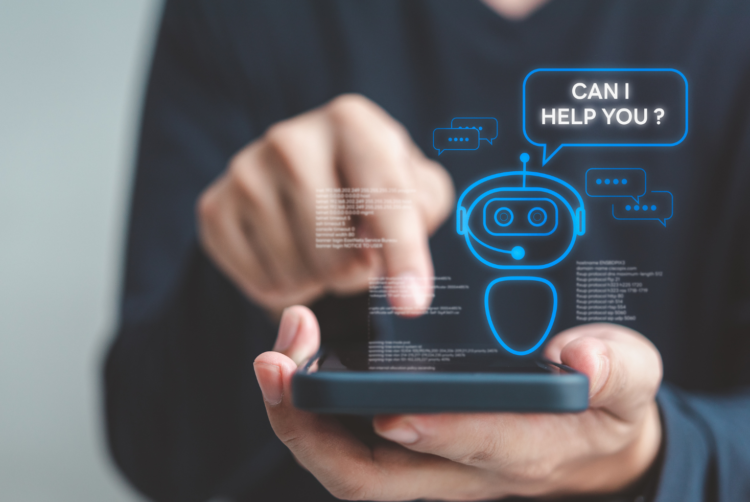OpenAI targets more of web journey as it diversifies

In the short space of a couple of weeks, OpenAI appeared to be making a number of moves that will have implications for the ad industry and put itself in even more direct competition with other tech giants.
ChatGPT’s owner is reportedly weeks away from releasing an AI-powered web browser that could fundamentally change how consumers browse the web and give the company more direct access to a key pillar of rival Google’s success: user data.
The browser is designed to keep interactions in one user interface within a ChatGPT-like platform. And it would allow OpenAI to directly integrate AI agents into the browsing experience.
Indeed, last week ChatGPT launched its personal assistant, an autonomous AI agent that can take action as opposed to simply responding to prompts.
The agent utilises AI research tools, but also has the ability to take control of web browsers, computer files and software such as spreadsheets. Capabilities include finding and making restaurant reservations, carrying out shopping, drafting travel itineraries and conducting work research.
It follows the launch of similar “agents” by Google and Anthropic, as popularity for autonomous AI models that can handle computer-based tasks continues to grow.
OpenAI highlighted that the model has been trained to confirm with the user before it takes any kind of action, stating: “You’re always in control. ChatGPT requests permission before taking actions of consequence and you can easily interrupt, take over the browser or stop tasks at any point.”
Additionally, OpenAI is reportedly planning to take a cut from online product sales made directly through ChatGPT as it further develops ecommerce features and sources new revenue streams. Revenue currently comes primarily from subscriptions to its premium services.
TechRadar reported in April that OpenAI has begun working with payments giant Shopify.
Currently, ChatGPT displays products on its platform with an option to click through links to online retailers. The new integration means users will be able to complete transactions within one interface, thus potentially rewiring the shopper journey.
Vendors who receive and fulfil orders this way will pay commission to OpenAI. This new model potentially poses a threat to Google and Amazon, which profit from users searching on their sites.
Currently, ChatGPT does not include sponsored product recommendations and OpenAI has confirmed there are no plans to change this.
Analysis: Taking on Google
With 500m active weekly users of ChatGPT, an OpenAI browser could put pressure on market leader Google.
Chrome is a key part of Google parent Alphabet’s ad business and its data helps the company target ads more effectively and profitably.
Google search, meanwhile, is the top search engine in the world, accounting for almost 90% of the market, according to Statcounter.
In fact, the US Department of Justice last year demanded its divesture after a judge ruled in a year-long antitrust case that Alphabet holds an unlawful monopoly in online search.
According to the department, Google’s search engine conducted 90% of web searches and spends billions to ensure it is the default search engine on Apple’s Safari and Mozilla’s Firefox.
The UK Competition & Markets Authority also launched a probe in January investigating the US tech giant under the Digital Marketers Act.
OpenAI’s competitor product would keep users in one search interface, meaning less data available to Google, potentially damaging its revenue while also revolutionising how consumers use the web and, more specifically, search.
Natasha Wallace, chief solutions of strategy and planning at Jellyfish, said an OpenAI web browser would mark a shift away to more streamlined interactions with the web.
She said: “It’s much more goal-orientated and that goal is far more selfish from a consumer’s perspective.
“It’s a challenge for a consumer trying to retrieve information on Google. The marketplace has really got ahead of that by aggregating all of that information into a simple user interface.”
While Wallace didn’t think usage of Google would diminish immediately, she noted: “What is interesting about ChatGPT is that it’s taking up a greater share of the demand and it will potentially take some search traffic away from Google.”
What this means for brands
Another potential implication of an OpenAI web browser and its personal assistant is that brands will have to change their strategy as consumers won’t visit their sites in the same way.
Brands and agencies will have to work out ways to promote their products in chatbot search results by posting content that is more likely to be picked up by large language models.
In effect, search engine optimisation will become “AI optimisation”.
Additionally, brands need to design websites and content that is easy for agents to understand and act on, especially in the case of personal assistants carrying out shopping for users, as the agent essentially becomes the consumer.
For Wallace, brands that focus on how agents see their brand will be the winners: “If nobody is going to spend time with your brand, how do you win share of mind?
“What brands need to think about is what data matters and start to prioritise how they collect or harvest persistent data records that matter in this new world.”
At The Future of Brands earlier this year, Jellyfish also discussed this shift in strategy for brands, with chief solutions officer for AI planning and insights Jack Smyth saying: “Understanding how large language models think about your brands will increasingly determine your share of market.”
The future of branding: Influence LLMs to protect your share of market




